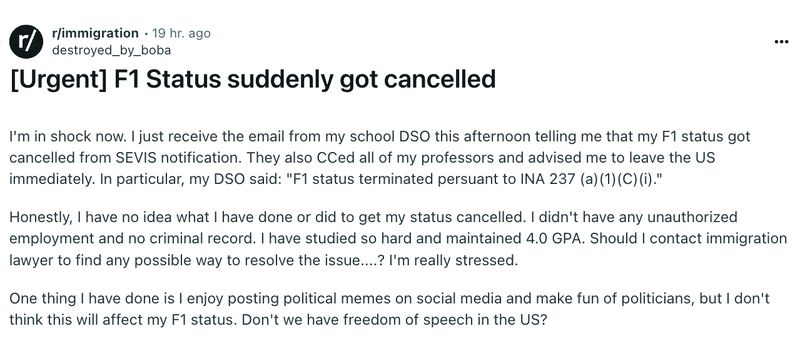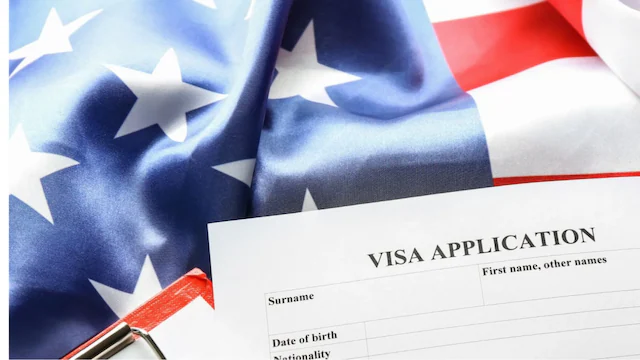International students in the United States received emails from the US Department of State (DOS), notifying them that their F-1 student visas were revoked. Many students now face the prospect of leaving the country. The crackdown targets students involved in campus activism, but it also affects those who simply liked, shared, or commented on “anti-national” social media posts. This has raised concerns about free speech for foreign students in the US.
The Open Doors report states that 1.1 million international students studied in the US in the 2023-24 academic year.
What is an F-1 visa?
The F-1 visa allows international students to study at accredited US institutions. Eligible institutions include universities, colleges, seminaries, and approved language training programmes. Students must be accepted into a full-time programme at a SEVP-certified school. They must also show English proficiency or enrol in courses to improve it. Furthermore, they must prove they can financially support themselves during their studies.
US crackdown on F-1 visa holders
The recent visa revocations followed comments from US Secretary of State Marco Rubio. Rubio confirmed that several student visas were revoked for “anti-national” activities. He emphasised that the US has the right to decide who can enter, saying, “Every country in the world has a right to decide who comes in as a visitor and who doesn’t.”
Rubio also mentioned the launch of an AI-powered app, “Catch and Revoke.” This app helps detect students who may support terrorist organisations like Hamas. As a result, the Department of State is now closely reviewing new student visa applications, particularly applicants’ social media activity. Students found in violation could face visa denials, preventing them from studying in the US.
Startling emails for affected students
Students received emails informing them that their F-1 visas were revoked under Section 221(i) of the US Immigration and Nationality Act. The emails warned that staying in the US without valid status could lead to fines, detention, or deportation. Some students were even told they might be sent to countries other than their home nations.

The emails also instructed students to reapply for a new visa if they wished to return to the US. The Department of State will assess eligibility at the time of application. Students were asked to use the CBP Home App to help with their departure. They were also reminded not to attempt to use their revoked visas and to present their passports at the US embassy or consulate upon leaving.
Concerns among students and immigrants
Secretary of State Rubio has argued that visas are not a “birthright” and warned that students who violate their terms will have to leave the US. “If you violate the terms of your visitation, you are going to leave,” he said during a CBS News interview.
The revocations have sparked concerns about the impact of social media on students’ legal status. One anonymous student shared their experience on Reddit. They said their visa was revoked despite having no criminal record and maintaining high academic performance. The student admitted to posting political memes online but questioned whether this should affect their F-1 status. “Don’t we have freedom of speech in the US?” they asked.
This situation has led to broader debates about the influence of social media on students’ legal status. Immigration experts, such as Soundarya Balasubramani, recommend that international students carefully review their documentation and avoid unnecessary travel. Balasubramani also suggests students keep records of their academic enrolment and visa status to protect their position.
At universities like Columbia, protests have been held to defend international students’ rights and advocate for academic freedom. The Student Workers of Columbia union has called for the restoration of academic freedom and greater protections for international students against government overreach.
